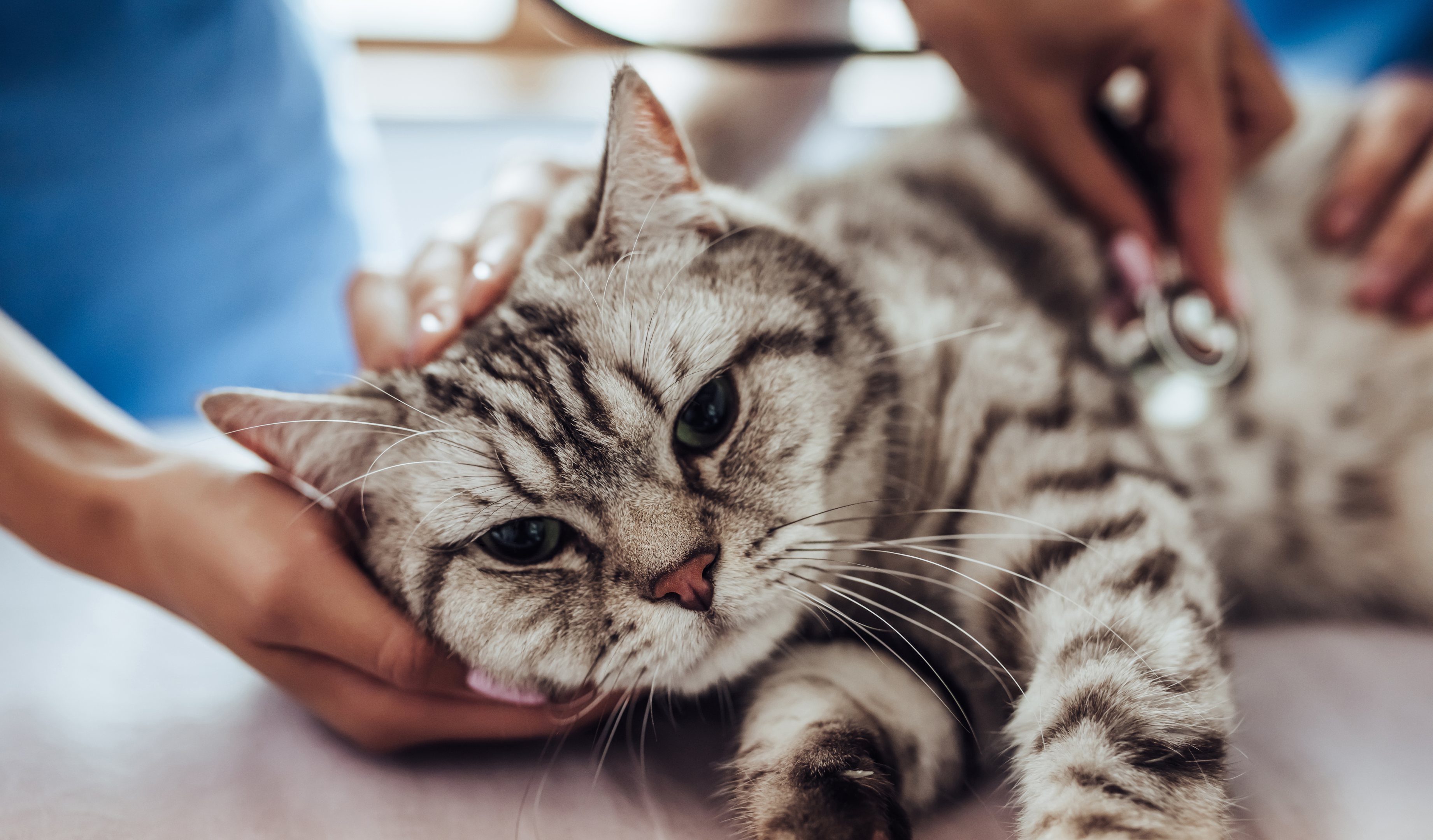
Finding the right veterinarian for your beloved furry friend is crucial for their overall well-being. While traditional veterinary medicine has its merits, many pet owners are turning to integrative medicine doctors. They are seeking a more balanced and natural approach to their own care as well as their pets.
In this blog post, we will discuss the essential credentials and attributes a holistic veterinarian should possess, as well as how to differentiate between a trained and experienced holistic practitioner and one who simply sells supplements.
Additionally, we will emphasize the importance of conducting thorough research and providing tools to aid in making an informed decision.
Why is it important to consider holistic veterinary care?
Often when your pet has been diagnosed with a serious disease, time is of the essence, and you don't want to use valuable time with someone who does not have the experience to help you. But there are many reasons to consider a holistic approach before problems occur.
Firstly, holistic veterinarians take a comprehensive approach to pet care, considering not only the physical symptoms but also the emotional and environmental factors that may be contributing to your pet's health issues.
They also tend to focus on nutrition as the basis of health. This is important because the commonly held belief that you should only be feeding commercially available processed foods. There is definitely a disconnect here with what we know about the importance of eating fresh whole foods for ourselves over a highly processed diet. How do these same principles not apply to our pets?
Secondly, holistic veterinarians often use natural therapies and alternative treatments, such as acupuncture and herbal remedies, in addition to traditional Western medicine. These treatments can be gentler on your pet's body than some conventional treatments and may have fewer side effects.
Thirdly, holistic veterinarians prioritize preventive care, emphasizing the importance of diet, exercise, and lifestyle choices in maintaining your pet's health and preventing future health issues.
Lastly, many pet owners appreciate the opportunity to be involved in their pet's care and to have a more collaborative relationship with their veterinarian. Holistic veterinarians often take more time to educate pet owners about their pet's health and are open to answering questions and discussing treatment options.
Overall, seeking care from a holistic veterinarian can provide a more individualized, gentle, and balanced approach to pet care that emphasizes preventive measures to maintain your pet's health.
What about holistic veterinary care and vaccinations?
I like to use the term integrative when I refer to care that encompasses the best of traditional veterinary care and holistic veterinary treatments. Medicine has advanced so much and it would be crazy to throw the baby out with the bathwater. It's important to prevent deadly diseases whenever safely possible. Diseases such as distemper and parvovirus are deadly, and if pets survive, they can be left with permanent and damaging health issues, when they could otherwise have been protected. Rabies kills 59,000 people a year in the world. It is 100% fatal if your pet contracts it.

When can holistic care complement traditional pet care?
Some diseases benefit more from a holistic approach than others due to their complex nature and the need for a more comprehensive treatment plan. Here are some examples of diseases that may benefit from a holistic approach:
- Degenerative myelopathy: This is a progressive neurological disease that affects the spinal cord of dogs. While there is no cure for degenerative myelopathy, holistic treatments such as acupuncture, physical therapy, and herbal medicine can help manage symptoms, slow the progression of the disease, and improve your pet's quality of life.
- Chronic renal failure: This is a common condition in older cats and dogs that can lead to kidney damage and failure. Holistic treatments such as acupuncture, herbal medicine, and nutritional therapy can help support kidney function, reduce inflammation, and manage symptoms such as nausea and vomiting.
- Cancer: Holistic treatments such as acupuncture, herbal medicine, and nutritional therapy can help support the immune system, reduce inflammation, and manage the side effects of cancer treatments such as chemotherapy and radiation. Additionally, many pet owners find that holistic treatments can improve their pet's quality of life and provide comfort during end-of-life care.
- Chronic pain: Holistic treatments such as acupuncture, chiropractic care, and herbal medicine can help manage chronic pain without the need for opioid pain medications, which can have serious side effects.
- Holistic treatments such as acupuncture, herbal medicine, and nutritional therapy can help manage seizures in pets. These treatments can provide a more natural and gentle approach to managing seizures, which may have fewer side effects than traditional medications.Idiopathic vestibular disease: This is a condition that affects the balance and coordination of pets. Holistic treatments such as chiropractic care, physical therapy, and herbal medicine can help manage symptoms such as nausea and dizziness, and improve your pet's quality of life.
- Inflammatory bowel disease: This is a chronic condition that affects the digestive system of pets. Holistic treatments such as nutritional therapy, acupuncture, and herbal medicine can help support digestive health, reduce inflammation, and manage symptoms such as diarrhea and vomiting.
How to choose a holistic veterinarian

These are suggestions. There are not a lot of veterinarians that are trained in all of the possible modalities. The most important thing is that they listen to you, and their ego is not above referring you to another veterinarian that might be able to help you. Here is a story for you illustrating just this.
I once had a tearful pet owner come to me whose 8 month old puppy had a large liver shunt that could be repaired with surgery. This would resolve the neurological signs he was experiencing. A single blood vessel was shunting blood past his liver so that it could not do its job of detoxifying the body. Because his liver could not mop up toxins, he would basically walk around stumbling like a drunk every time he ate.
Imagine a puppy like this and an owner in tears because she was told by a homeopath that if she did surgery that it would surely worsen the disease. Based on homeopathic principles the body should heal on its own with the homeopathic treatments. Although homeopathic treatments have their place, they cannot surgically repair an anatomical defect.
I was the fourth opinion. The client sitting in front of me had been to their traditional veterinarian, a surgeon, and then a homeopathic veterinarian to exhaust her options before pursuing the surgery. The homeopathic veterinarian and the surgeon were at odds, and the owner was in tears. What was she to do when she was told that the surgery could worsen the puppy and cause the neurological signs to worsen, even progressing to seizures. Understandably she was in tears!
After looking at all the records I recommended she pursue the surgery as the best course of action. You cannot imagine the relief that this owner felt when her dog, who had a single, large portosystemic shunt was tied off by a surgeon, went on to have a normal life. The surgery completely resolved the problem, and restored the livers ability to detoxify the body. We have progressed a lot since the 1800's when homeopathic principles were pioneered by Samuel Hahnemann!
Beware of those who are only open to one method of healing. When all you have is a hammer, everything looks like a nail!
Ask your traditional veterinarian for a referral. If your veterinarian won't give you one, it's time to do your own research. When your pet has a serious disease, it's important to call on the opinion of others, including traditional specialists in oncology, neurology, and nutrition.
Experience:
How many years have they been practicing? You can't be an excellent holistic practitioner if you don't have a solid background in Western Medicine complemented by training in holistic modalities.
Holistic veterinary medicine encompasses all aspects of veterinary care. A truly integrative and holistic doctor acknowledges the validity of evidence-based medicine. The examine it with a critical eye. Most importantly they can lean on years of experience when it is unavailable, as is often the case with chronic diseases.
Credentials:
What kind of training do they have, and are they certified? They should have completed training and not just selling vitamins.
Are they and their animal hospital well-rounded?
What is in their toolbox? This is especially important with degenerative myelopathy. I can't tell you how many times I've seen a GSD with DM that wasted months doing chiropractic adjustments and not adding physical therapy to the mix. When I see these dogs 5 months in and they can't walk, it's heartbreaking to know they would not be at this point if they had also received physical therapy. This is where the evidence trumps the modality. Yes, acupuncture and chiropractic may help this patient, but ignoring the fact that PT will keep that pet ambulating longer than anything else can't be ignored.Many practices have doctors that provide collaborative care. There are acupuncturists, veterinary chiropractors, physical therapists and individuals skilled with herbal therapies and homeopathy.
Word of mouth
If your veterinarian will not give you a referral, connect with people on social media and find out where they received help. Ask your dog trainer, your pet sitter, and even Nextdoor.
Look at their website and animal hospital and holistic care options
This is a great way to see their qualifications and training. Simply going to veterinary school is not enough. Are they formally trained in acupuncture, herbal medicine, chiropractic, and nutrition?
Do they have a welcoming, fear-free environment for both pets and their owners.
Are they a good communicator?
A good holistic veterinarian should have excellent communication skills and a compassionate approach toward animals and their owners. Will they address your questions and not dismiss your concerns? Many holistic veterinarians will allow more time for a consultation. Of course, this might be more expensive, but well worth it.
Differentiating rue Holistic Practitioners from Supplement Sellers:
Unfortunately, some individuals may falsely advertise themselves as holistic veterinarians while primarily focusing on selling supplements. Here's how you can spot the difference:
Conclusion and Resources
Overall, the benefits of seeking care from a holistic veterinarian include a more personalized and comprehensive approach to your pet's care, the use of natural and alternative therapies that may have fewer side effects than traditional medications, and a focus on preventive care and lifestyle choices that can help maintain your pet's health over time. If your pet has one of these conditions or other complex health issues, it may be worth considering consulting with a holistic veterinarian to explore all available treatment options.
Here are some links to explore:
- AHVMA.org
- Chi Institute: lean heavily on Chinese Medicine: https://alumni.chiu.edu/










